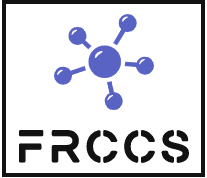Third French Regional Conference on Complex Systems, 31 Mai – 02 Juin 2023, Le Havre
Date :

You are cordially invited to submit your contribution until March 6, 2023. (firm deadline)
The French Regional Conference on Complex Systems (FRCCS) is an International annual Conference organized in France since 2021. After Dijon (2021), Paris (2022), Le Havre host its third edition (FRCCS 2023). It promotes interdisciplinary exchanges between researchers from various scientific disciplines and backgrounds (sociology, economics, history, management, archaeology, geography, linguistics, statistics, mathematics, and computer science). FRCCS 2023 is an opportunity to exchange and promote the cross-fertilization of ideas by presenting recent research work, industrial developments, and original applications. Special attention is given to research topics with a high societal impact from the complexity science perspective.
Keynote Speakers
Luca Maria Aiello ITU Copenhagen Denmark
Ginestra Bianconi Queen Mary University UK
Víctor M. Eguíluz University of the Balearic Islands Spain
Adriana Iamnitchi Maastricht University Netherlands
Rosario N. Mantegna Palermo University Italy
Céline Rozenblat University of Lausanne Switzerland
Submission Guidelines
Finalized work (published or unpublished) and work in progress are welcome. Two types of contributions are accepted:
· Full paper about original research
· Extended Abstract about published or unpublished research. It is recommended to be between 3-4 pages. They should not exceed four pages.
o Submissions must follow the Springer publication format available in the journal Applied Network Science in the Instructions for Authors' instructions entry.
o All contributions should be submitted in pdf format via EasyChair.
Publication
Selected submissions of unpublished work will be invited for publication in special issues (fast track procedure) of the journals:
Topics include, but are not limited to:
· Foundations of complex systems
- Self-organization, non-linear dynamics, statistical physics, mathematical modeling and simulation, conceptual frameworks, ways of thinking, methodologies and methods, philosophy of complexity, knowledge systems, Complexity and information, Dynamics and self-organization, structure and dynamics at several scales, self-similarity, fractals
- Complex Networks
- Structure & Dynamics, Multilayer and Multiplex Networks, Adaptive Networks, Temporal Networks, Centrality, Patterns, Cliques, Communities, Epidemics, Rumors, Control, Synchronization, Reputation, Influence, Viral Marketing, Link Prediction, Network Visualization, Network Digging, Network Embedding & Learning.
- Neuroscience, Linguistics
- Evolution of language, social consensus, artificial intelligence, cognitive processes & education, Narrative complexity
- Economics & Finance
- Game Theory, Stock Markets and Crises, Financial Systems, Risk Management, Globalization, Economics and Markets, Blockchain, Bitcoins, Markets and Employment
- Infrastructure, planning, and environment
- critical infrastructure, urban planning, mobility, transport and energy, smart cities, urban development, urban sciences
- Biological and (bio)medical complexity
- biological networks, systems biology, evolution, natural sciences, medicine and physiology, dynamics of biological coordination, aging
- Social complexity
o social networks, computational social sciences, socio-ecological systems, social groups, processes of change, social evolution, self-organization and democracy, socio-technical systems, collective intelligence, corporate and social structures and dynamics, organizational behavior, and management, military and defense systems, social unrest, political networks, interactions between human and natural systems, diffusion/circulation of knowledge, diffusion of innovation
- Socio-Ecological Systems
- Global environmental change, green growth, sustainability & resilience, and culture
- Organisms and populations
o Population biology, collective behavior of animals, ecosystems, ecology, ecological networks, microbiome, speciation, evolution
- Engineering systems and systems of systems
- bioengineering, modified and hybrid biological organisms, multi-agent systems, artificial life, artificial intelligence, robots, communication networks, Internet, traffic systems, distributed control, resilience, artificial resilient systems, complex systems engineering, biologically inspired engineering, synthetic biology
- Complexity in physics and chemistry
- quantum computing, quantum synchronization, quantum chaos, random matrix theory)
GENERAL CHAIRS
Cyrille Bertelle LITIS, Normastic, ISCN, Le Havre
Roberto Interdonato CIRAD, UMR TETIS, Montpellier
PROGRAM CHAIRS
Moulay A. Aziz-Alaoui Université Le Havre Normandie
Hocine Cherifi Université de Bourgogne, Dijon